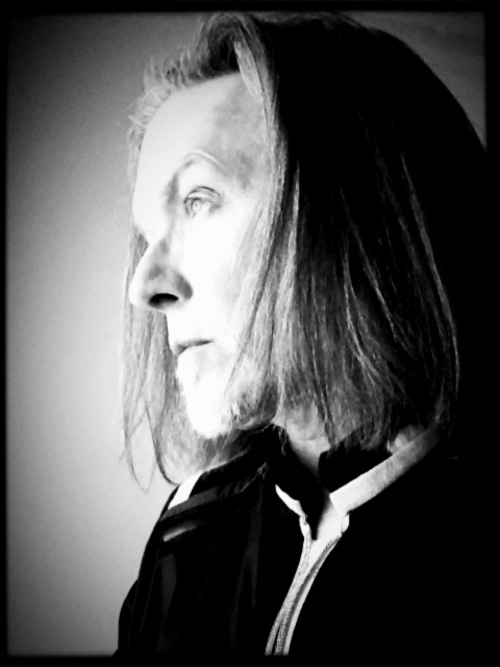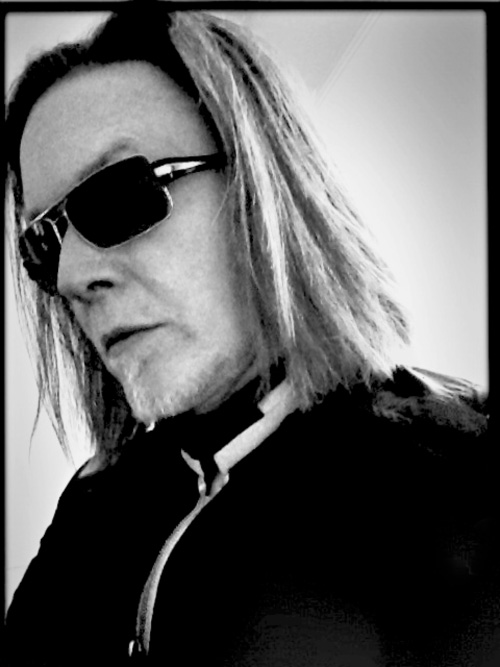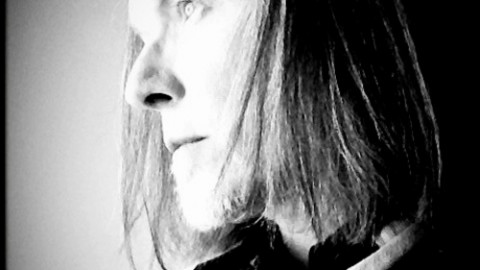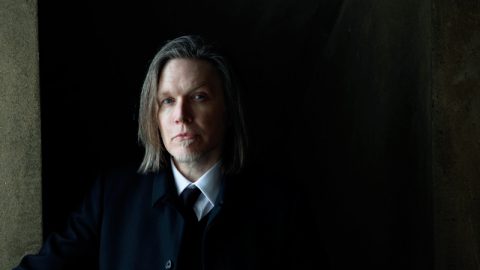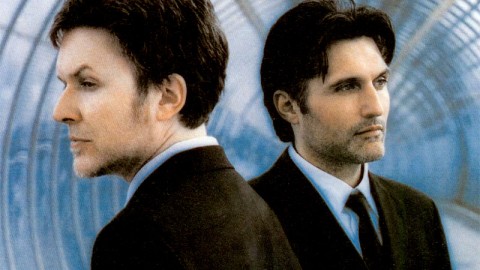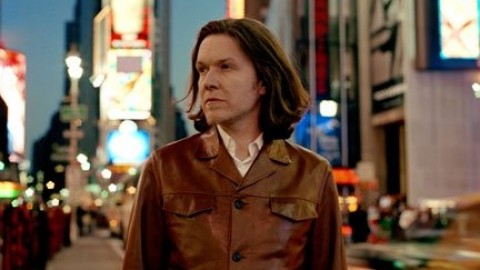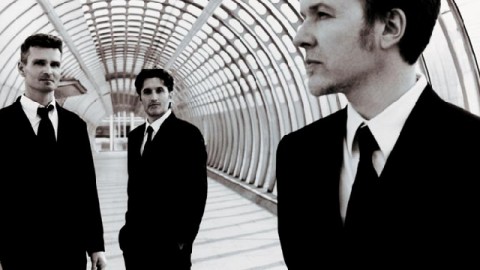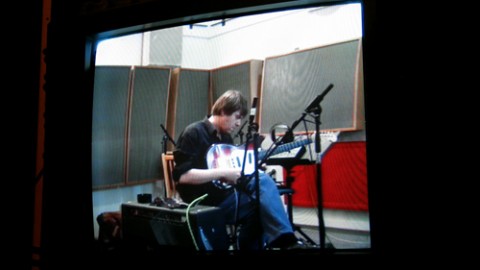Zero Music Magazine (Sweden). Journalist: Hans-Olof Svensson on the subject of Sleepwalkers:
Sleepwalkers – Selecting Tracks
How did you decide which tracks should go on the album? What were the selection criteria? What tracks were considered for inclusion but then left off, and why? Linoleum, for instance, is a personal favourite of mine.
The process of selection comes down to personal preference and availability of the material. For example, Id have liked to have reworked the theme for the manga series Monster entitled For the love of life and Blonde Redheads The messenger but for various reasons this wasnt possible.
What kind of dynamic were you trying to create in assembling these particular tracks in this particular order? Can a piece of music in some way be altered simply by taking it out of one context and placing it in another context and another dynamic, and if so, can you give specific examples of this?
Firstly theres the issue of continuity. When compositions come together that werent intended to be heard in the same context you might find some interesting contrasts and a certain amount of friction. Of course, listening to a particular piece in a fresh context can change our response to, or perspective on it. Take a piece such as Transit which, when heard in the context of Christians original Venice cd has a sonic continuity with the pieces which surround it but in the context of Sleepwalkers the introduction to Christians sonic palette can be quite startling which, to my mind, is a desirable result. I enjoy hearing dramatic contrasts in a body of work as much as I enjoy something that was designed with a more conceptual uniformity.
Sleepwalkers – Specific Tracks
Are you the kind of artist who feels comfortable explaining what individual tracks are about, or do you feel that an explanation from the artist somehow diminishes the music and/or lyrics by limiting the interpretations open to the listener? Personally, for instance, I’m curious as to who the fucking sleepwalkers of the title track might be.
I feel no need to pin down the meaning behind the lyrics of a particular song.
We’re all blind-eyed, dull-witted sleepwalkers for the most part. It takes an enormous effort of will to change this involving a recognition of the condition and the prescribed antidote to be administered. You can take a simple test as outlined by Ouspenksy, illuminated by Gurdjieff, but what is after all a basic component of Buddhist practice. Sit and practice conscious awareness. I am here, now. I am awake in this moment now, awake to the stimuli around me, not lost in thought, reflection, projections into the future, waking dream states etc. Once you’ve awoken to this awareness, recognised not just the sense of clarity but that its an altogether different state of mind than one predominantly finds oneself, see how long it is before you once again come back to that state and acknowledge it as in I am here now. For some it’s a matter of seconds perhaps depending on the distractions around you at that moment in time. For others minutes, hours, even months might pass before we wake to the present moment again. Whatever the distance travelled that is how long you were asleep and so on throughout your lifetime.
Thats one possible interpretation of the line you’re curious about. There are others that are equally valid related to cultural consumerism and our addiction to the things that keep us asleep as opposed to challenging us to wake up in the 21st century. Culture as comfort food.
This interview is aimed at Swedish and Scandinavian readers, who might be particularly interested in your collaboration with Stina Nordenstam on Wonderful World. What can you tell us about that collaboration: how it came about, the creative process, personal chemistry between the individuals involved, anecdotes from the recording session? Basically whatever occurs to you in summing the collaboration up.
While writing the lyric to Wonderful World it occurred to me that the chorus should be sung by a female voice. I knew Stina’s work well and felt, rightly or wrongly, that I could hear overt references to my work in her own. Regardless, I felt she was the right person for this particular track so we made contact and eventually flew over to Stockholm to work with her. One of the first things she told me as she sat in the hotel lobby with a beat up guitar missing about three strings, was that my music had been an influence of some kind in her life, I’ve no idea to what degree, and so I immediately felt we were intuitively on common ground. Steve, Stina and myself spent a wonderful evening together walking Stockholm, talking about everything under the sun. The next day we recorded and rapidly covered all the ground necessary. Stina had, overnight, composed a couple of verses for another piece we were working on and we had time to lay that track down also. She knows her instrument exceptionally well, how to get the most out of that beautiful, seemingly fragile, voice. It might sound odd to say it but the experience of meeting and working with Stina was something akin to reconnecting with a long absented but loved sibling.
By the way, obviously Ballad of a Deadman is very firmly planted in a certain musical tradition, but more specifically it reminds me of Work Song by Oscar Brown Jr and Nat Adderley. Can you hear that similarity too, and if so, was it intentional?
I didn’t compose the music for Deadman, my brother did. You’d have to ask him about specific musical references although I’d imagine the impetus was simultaneously something more contemporary and more rootsy than either of the gentlemen mentioned above. From my standpoint, I simply responded to what I heard. The lyric is very loosely based on
Joan Didion’s book on the settling of California, where Im from. I’d lived there for a number of years and knew the landscape of which she wrote. Love Didion, love California, this was a tribute to both.
Musical Development
This record charts the last decade. What have been the most creatively rewarding moments during this period for you? Can you name times and places (and people) where something clicked and things fell into place?
Outside of the material on this album I was primarily focused on recording my solo work. I reached a turning point working on both the title track for Blemish and The Only Daughter. I worked on these pieces alone but both tracks really opened things up for me regarding the process in which they were made and the depth of the emotions experienced/expressed. On a later occasion I remember everything coming into focus at a session in Vienna with Keith Rowe, Michael Moser and Werner Dafeldecker, that justified a particular approach I had chosen to take and which confirmed the direction of my work for the next few years. There were many moments on the Nine Horses project where things really came together beautifully, notably writing the tracks Wonderful World and Atom and Cell with my brother. At the end of the Blemish tour in 04, I wrote the lyric for A History Of Holes in a hotel in Köln prior to a meeting with Burnt Friedman which marked the beginning of our creative involvement together. Later that evening I attended the Erstwhile festival where I would meet many of my future collaborators (Otomo, Nakamura, Sachiko, Rowe, Mller ) for the first time. Thinking specifically of material related to this album, Ryuichi asked me to contribute to a commission he’d received but had yet to find a direction for. He sent me some musical references and occasional sketches but nothing clicked with me until I heard the piano loop for what was to become World Citizen. I played the loop on a four hour drive to NYC. By the time I arrived everything was in place. I’m still quite fond of that lyric. Whilst Steve was working on Slope I’d been assigned to find suitable vocalists for each track he’d send my way. Late one evening, after a days work on Manafon, I found an audio file waiting for me from Steve. As I played the file back I found I had a melody for the piece and quickly scribbled down some lyrics, recorded the results into a portable digital recorder and mailed the results back to him with notes as to who should sing it before sinking deeply into sleep. That piece had a very simple sense of rightness about it. Steve eventually asked me to record a version of my own which is how two versions of Playground Martyrs ended up on his album.
The majority of the tracks on Sleepwalkers were written in isolation. The only exception is Wonderful World where Steve and I were working in the same location.
For a long period you appeared to be moving away from song-based pop structures to a looser form of experimentation, but you have also said that recently you have been returning to songs. Where along that line are you right now?
I suspect I’ll always be moving back and forth between the two, occasionally occupying space in the middle ground.
Surface / depth is a dichotomy that springs to mind here. Are song-based structures somehow by their very nature more superficial, or can the restrictions of working within a defined frame or format produce depth in other ways? Is this a balance you try to address at all as you work, or do you simply let the chips fall where they may?
I believe depth and superficiality are not determined or defined by form but rather by intention. Working within a given form or limiting oneself by other means often produces the more interesting results. Even the material I was working with on Manafon presented me with a serious set of limitations. I’d also given myself certain rules to adhere to such as not to edit the recordings themselves, as in cutting into the body of an improvisation, which meant there were plenty of creative obstacles to be overcome.
The seemingly simplest of pop/folk/rock songs can hit a common chord in the hearts of many, can run as deep as other form of music. One thinks of Nick Drake, Dylan, Lennon, Caetano Veloso, John Martyn, Bob Marley, Marvin Gaye, Jeff Buckely, Lou Reed + VU, Joni Mitchell, to name but a few.
Thoughts on the Interview Process
How do you feel about the interview process? Can it produce worthwhile results, is it a necessary evil or just a chore?
Depending on frame of mind, all of the above. On the completion of new work it can be instructive to be in the position of trying to explain ones reasoning as clear logic rarely comes into the creative process as such. It’s like being present at the scene of a fire, a baby thrown from the third floor window of a blazing building which, without knowing quite how or why, you mange to catch. The reporter asks, so what were you thinking when you saw the baby falling… There’s no satisfying answer to that question, just an ineloquent recounting of fact. You can’t speak of impulse and intuition, you tend to talk around it with metaphors, analogies. You intuit something of which the mind has only the slightest inkling.
Your personality seems to be somewhat introverted or introspective. (I feel uncomfortable making this kind of assumption or statement about someone I have never talked to, and whom I am only writing to now, but I suppose its a necessary concession to the limitations of the interview process.) Would you agree that this trait makes for better personal insight, but a reluctance to actually share it, i.e. you’ve got something to say but don’t really feel like saying
it, whereas many musicians and celebrities are the opposite? (I do realise that Im making the classic error of asking a yes/no question here)
Well, Id agree that introspection leads to a greater clarity of insight which is something were all the better for. To be somewhat introspective does tend to make one wish for a more or less private existence but, as a writer, simultaneous with that desire, is another that intends to share work which one feels might be of interest or beneficial in some capacity or another. I suppose that comes down to a simple inclination to be of service, to live a life in which one gives back. In other words ones own personal needs dont take precedence, or at least a compromise has to be reached in life and not elsewhere. For the writing to have any kind of value, certainly in my case, entails a good deal of self-revelation in that I don’t stand in its way but follow where it leads. The confessional isnt where the intrinsic value lies, as in it isnt merely confessional for the voyeuristically inclined but the work has to be rooted in some kind of exposure of an aspect of the human condition. The best material has something of a specific or personal nature that can be applied generally. Without the general application the material is virtually worthless.
You’ve said you never look back. Can you shut retrospection off at will, or does the fact of compiling a record like this, and then being interviewed about it, force you to look back anyway? If so, can it be useful or is it merely mental debris that you need to detox yourself of afterwards?
I dont have any personal desire or need to look back. I carry within me what I need to move forward. .. I never reread what Ive written. I’m far too afraid to feel ashamed of what I’ve done. Jorge Luis Borges
We inevitably fall short of our self-made goals and so, as Beckett might say, we go on.
Do you sometimes find yourself being amused by pretentious journalists tying themselves in knots to interpret your music and sometimes trying too hard? Have there been any interpretations that you recall as being particularly wide of the mark? (Without naming and shaming anyone, of course.)
I’ve heard one or two things thats surprised me over the years, not from journalists but from listeners who were projecting their own neuroses onto me or the material but it doesn’t really matter unless the projection is seen as justifying something of a harmful nature, self or otherwise. I’m happy that listeners find themselves reflected in the compositions, that’s as it should be. Reviews are something other. Whether positive or negative they’re nearly always off the mark regarding where the value or the faults of the material lie.
Literature and Current Influences
As I write this I hear on the radio that the Swedish Academy has announced this years winner of the Nobel Prize in Literature, Mario Vargas Llosa. How do you feel about their decision?
Ambivalent.
What books are you currently reading, and what are you getting from them? Assuming one can make sense of a learning process while it’s still going on. Perhaps I should rephrase that question and ask about books from your recent past. Which works of art, cinema or music have you been influenced (for want of a better word) by recently? (I do know that this is one of the most trite and unoriginal questions one can ask, but there is always the hope that the response will be interesting nonetheless.)
To answer the above; I don’t believe inspiration comes from books, films and the like. I tend to feel that one knows when something needs to be addressed internally, intuitively, but one doesn’t always know what that might be or how to approach it, but by a timely crossing of paths with a particular book or film or whatever, the vessel filled to brimming is uncorked and the work begins to flow.
Present and Future
Assuming this record is a way of putting your recent work behind you, in what direction(s) will you be moving in the near future?
I wouldn’t classify this project as a kind of fork in the road. It’s simply material that Ive produced outside of the solo albums that I wanted to gather up and put under one roof for easy access. It’s been on the cards for sometime. I’m still putting together an alternate take on Manafon which incorporates new compositions as well as new orchestral arrangements of some of the pieces from that project. That should be wrapped up by the end of the month after which I’ll have a number of alternate projects on the table from which to choose. I’m not entirely certain at this juncture which will claim my attention first. I do tend to enjoy working on multiple projects simultaneously so that’ll likely
be the approach I’ll take. In terms of direction, the projects all potentially point in differing directions from the electronic to the orchestral to more traditional forms of song writing. A couple of the projects demand long-term commitment regarding the amount of work and time involved but I don’t feel Im in any kind of rush, it’s more an issue of wanting to be certain I’m not covering ground that I’ve been over once before.

